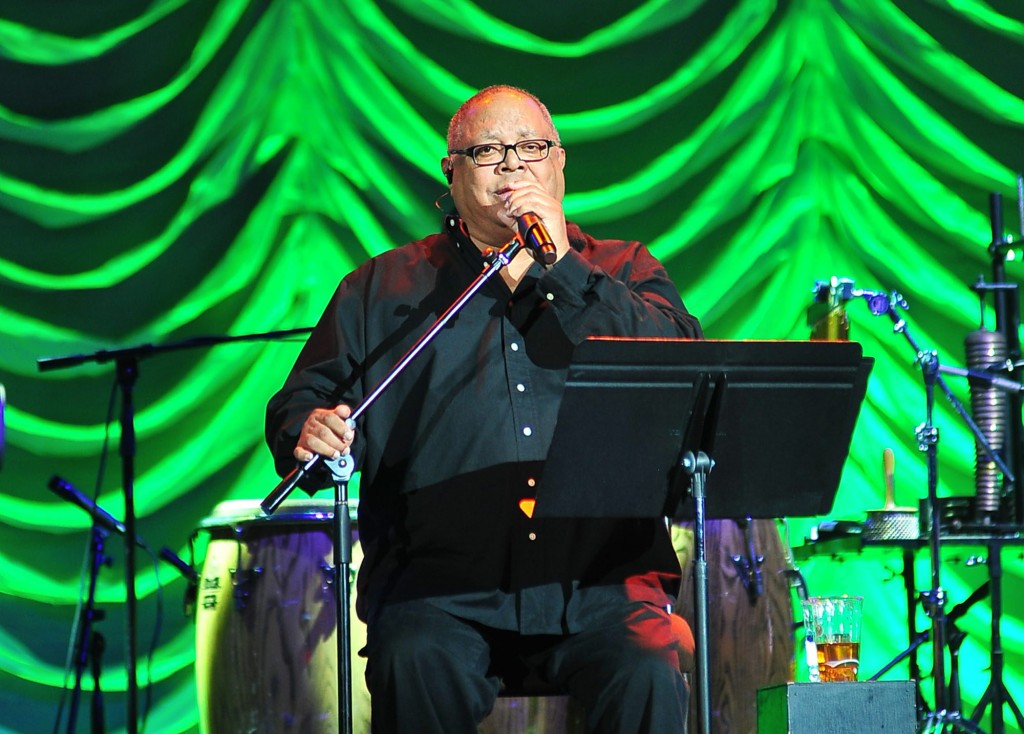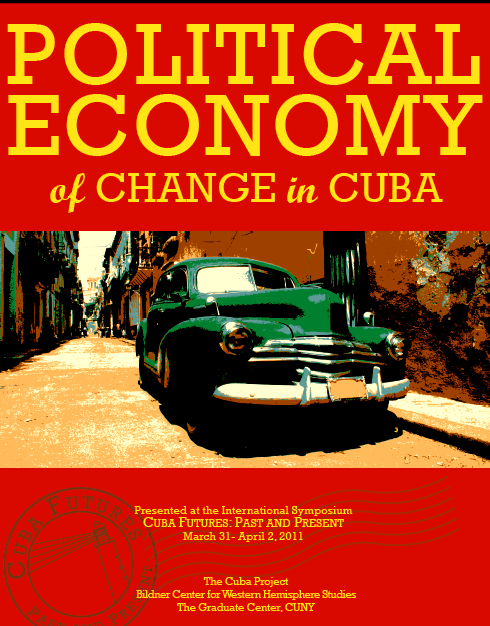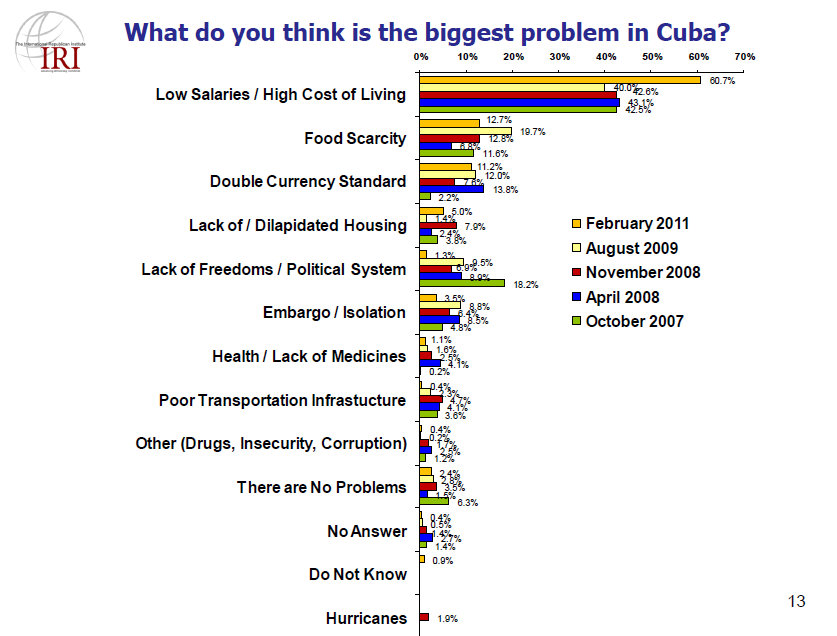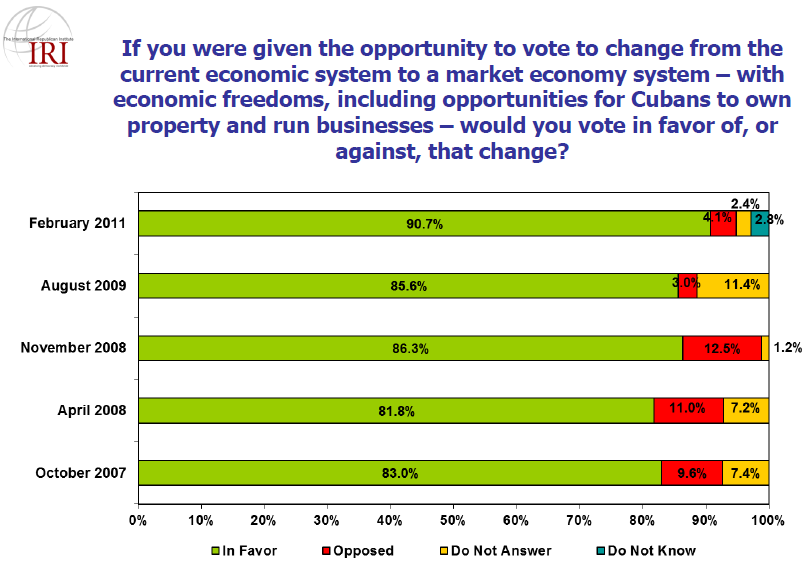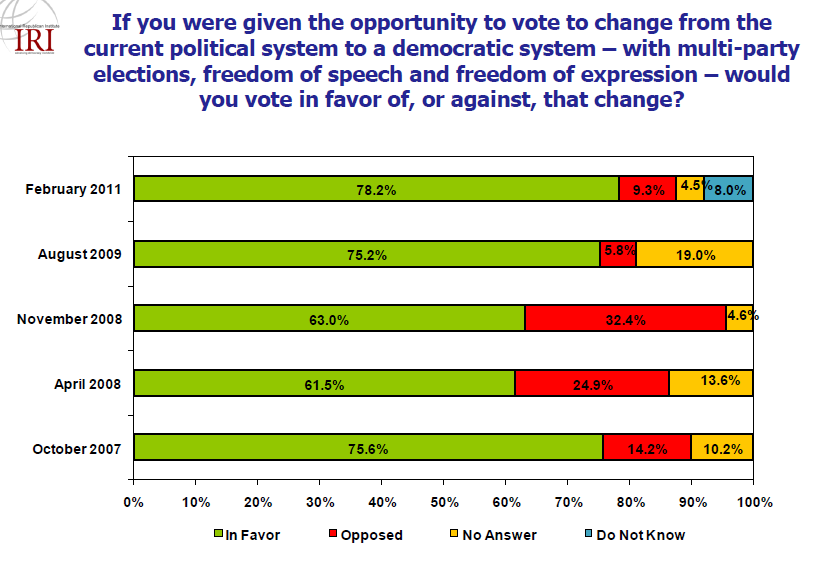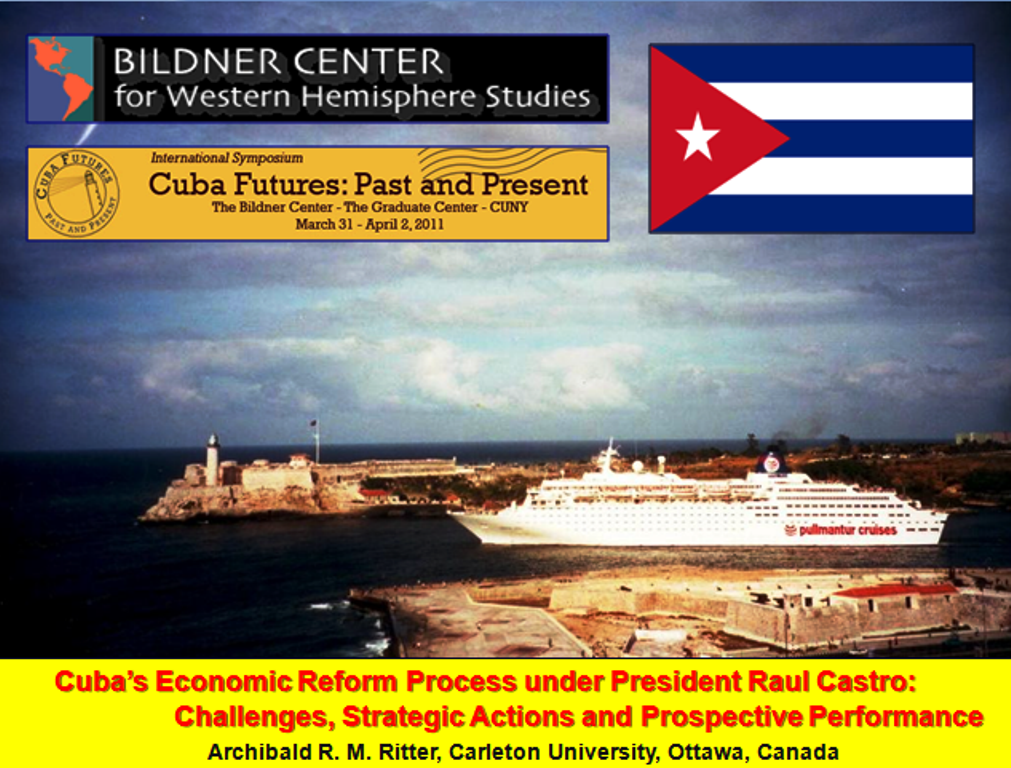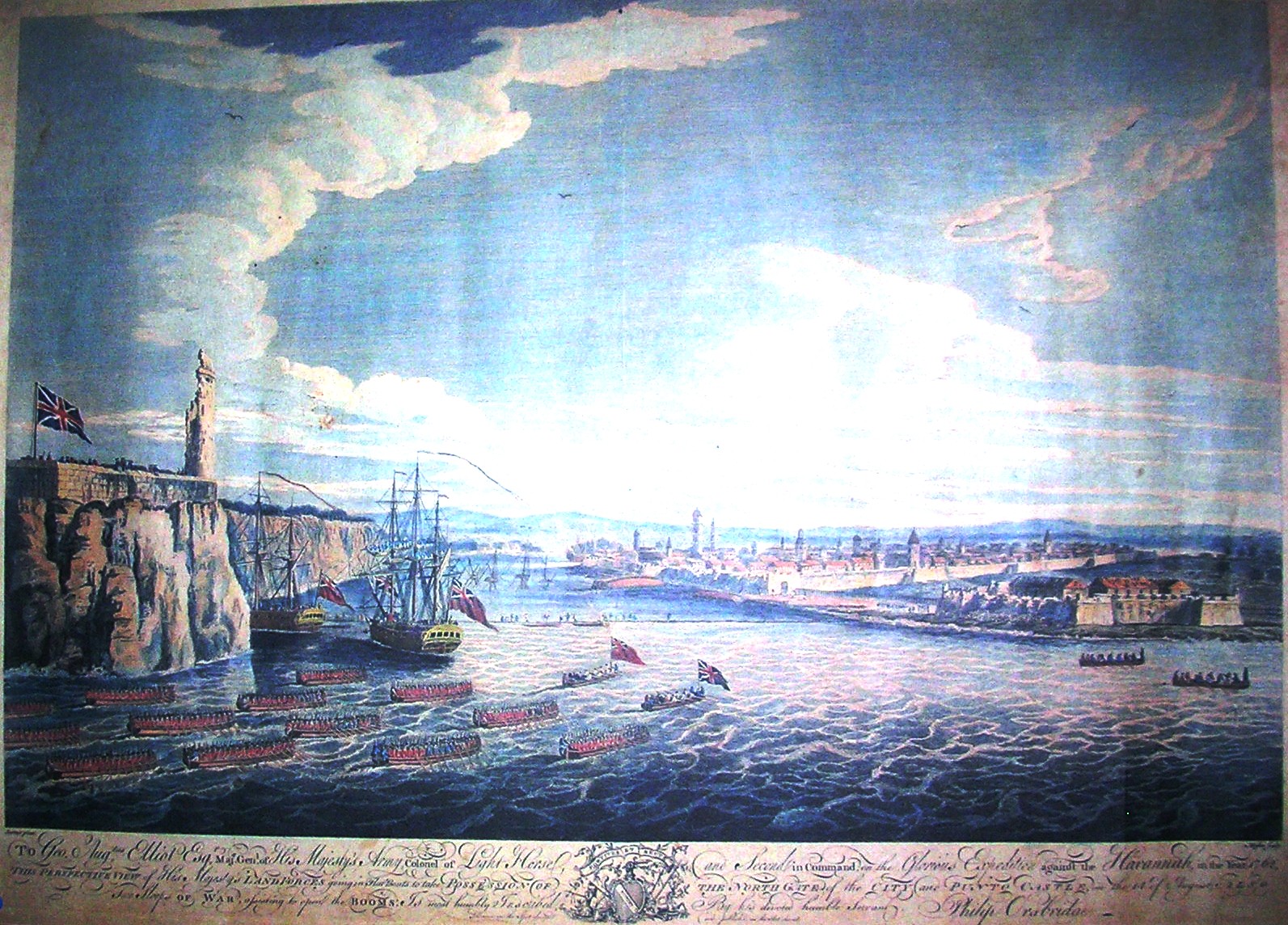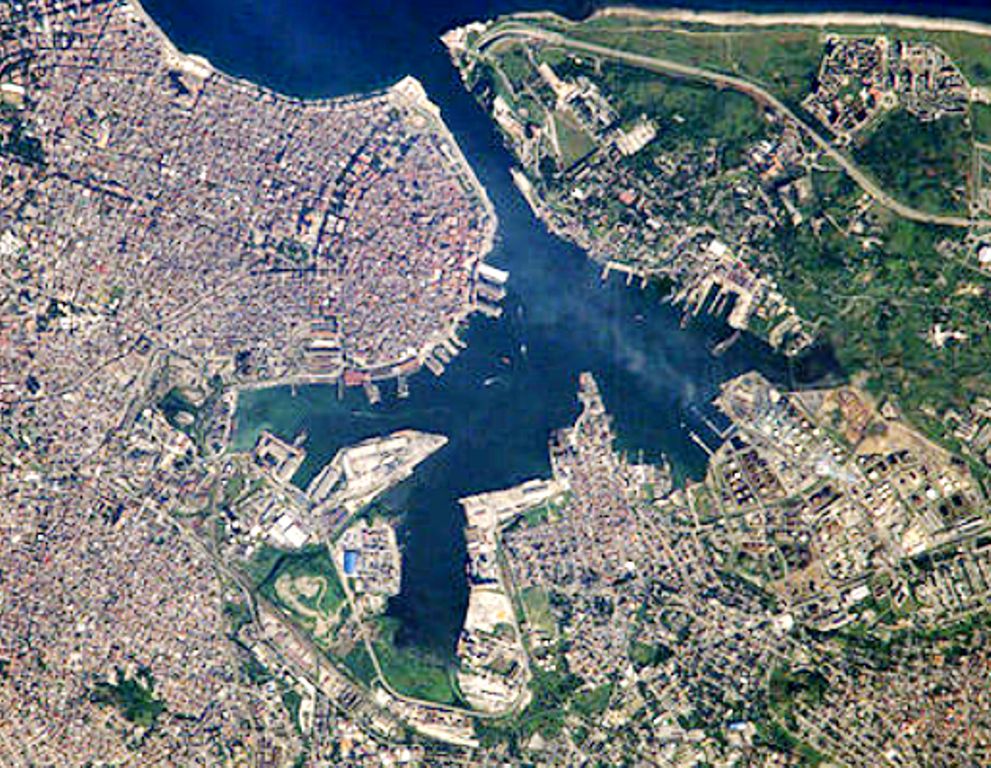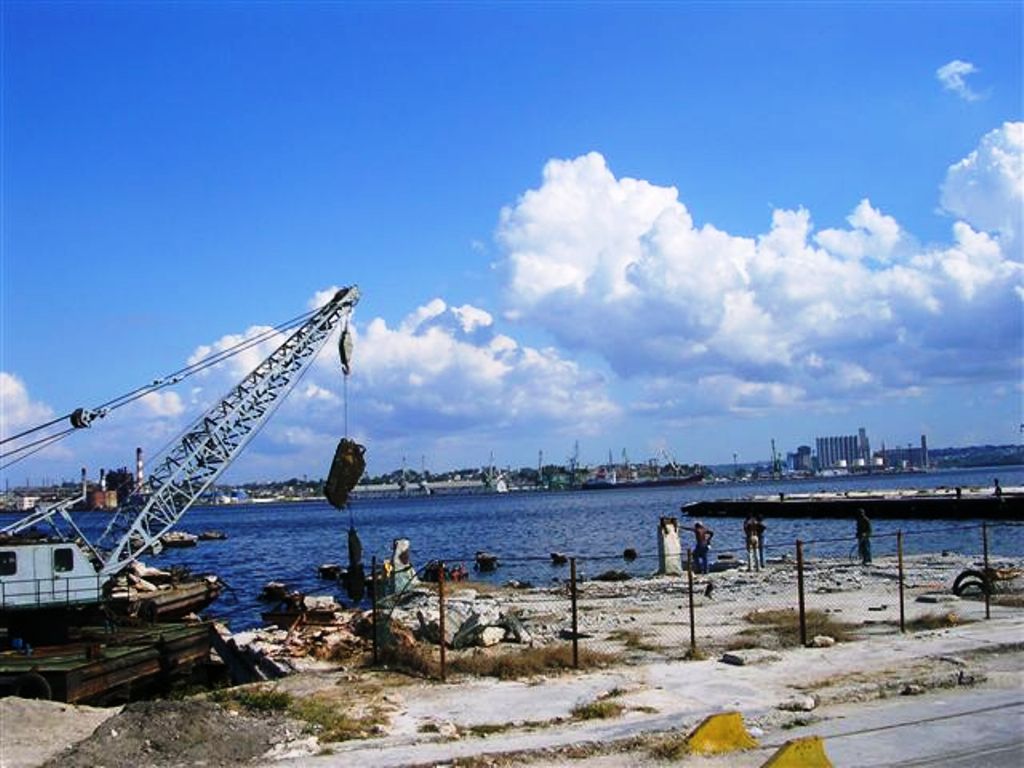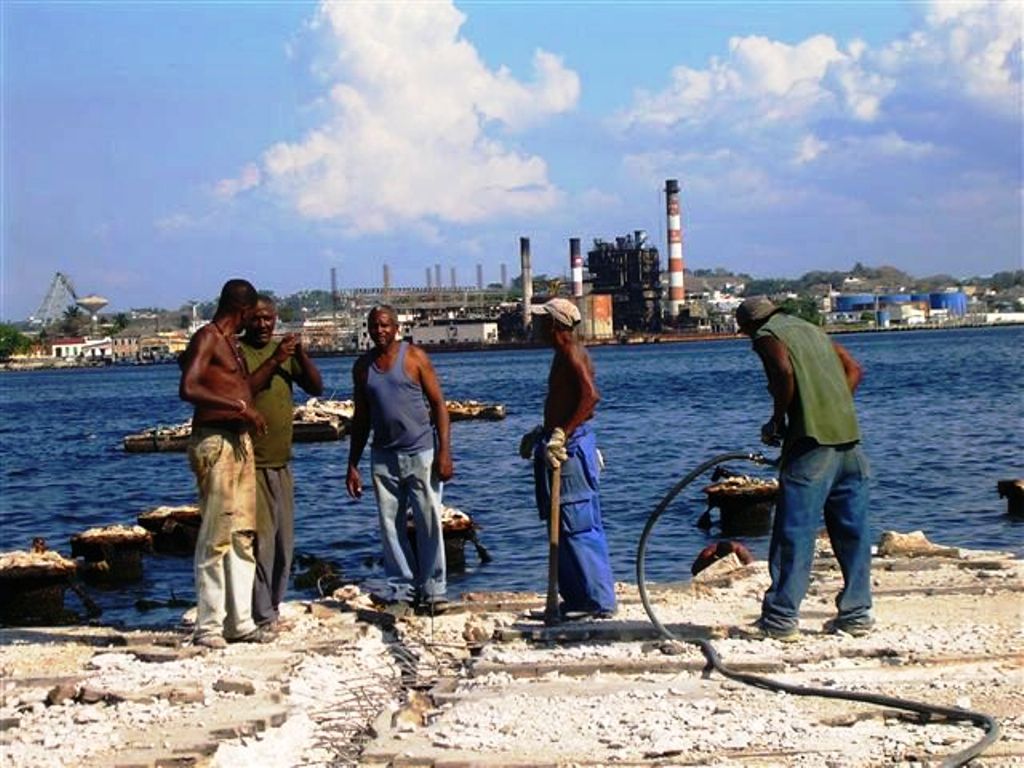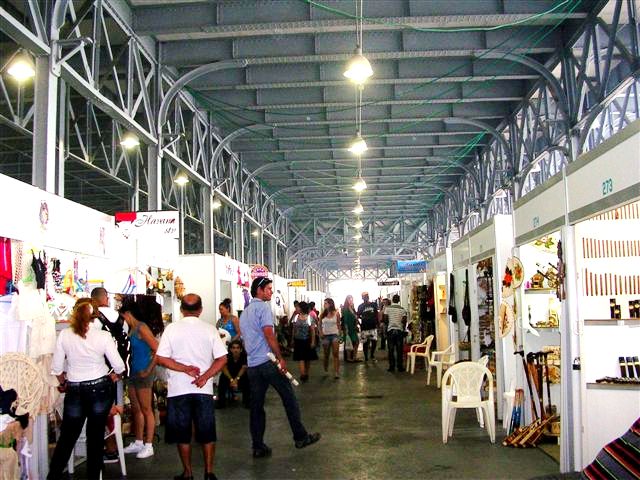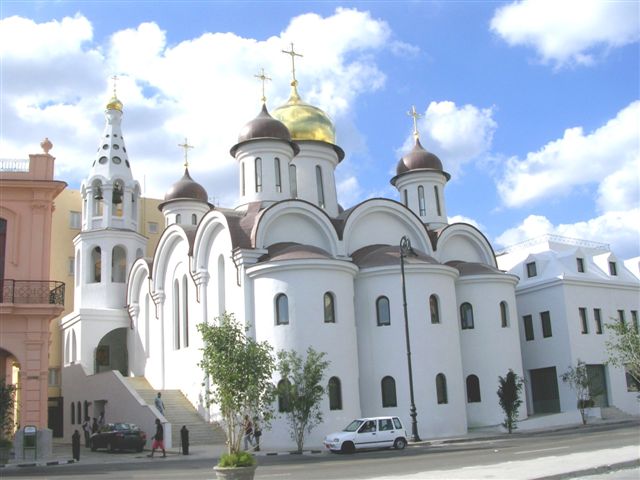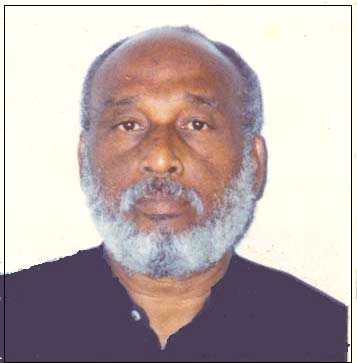The July-September 2011 edition of La Revista Espacio Laical has just been published. Its primary focus is on an evaluation of the results of the VI Congress of the Communist party of Cuba.Included also is an interview with Phil Peters, author of the Blog The Cuban Triangle and Carlos Saladrigas.Unfortunately it is available only in Spanish.

Here is a full Table of Contents together with Abstracts of some of the Economics Essays with hyper-links.
Table of Contents:
Índice General
Secciones y artículos:
EDITORIAL : El reto de ser audaces – Del Magisterio.
RELIGIÓN
– Contemplarán al que traspasaron. Por Sandro Magister
– La contemplación de la belleza. Por Joseph Ratzinger
PÁGINAS RESCATADASA cargo de Jorge Domingo Cuadriello
– El patriotismo cubano. Por Eliseo Giberga
EL DOSSIER: Post VI Congreso PCC
– El VI Congreso del Partido y los Lineamientos: ¿un punto de vi raje para Cuba? Por Archibald Ritter
– El VI Congreso: una evaluación preliminar. Por Armando Chaguaceda.
– Cuba: ¿qué cambia tras el VI Congreso del Partido Comunista? Por Carmelo Mesa-Lago.
– Cambios en marcha y consensos por lograr. Por José Ramón Vidal
– Tratando de reinventar el socialismo. (Entrevista a Ricardo Alarcón). Por Manuel Alberto Ramy
– Reformas económic as y desarrollo en el Este de Asia: ¿una experiencia para Cuba? Por Arturo López-Levy
INTERNACIONALES
– La apuesta egipcia. Entrevista a Antonios Naguip. Por Gianni Valente
– Mi vida para la libertad de Chile. Entrevista a Sergio Bitar. Por Roberto Veiga González
BÚSQUEDA:
– Cuba y su diáspora: el desafío de facilitar un reencuentro. Por Carlos Saladrigas
– Poder e ineptitud en el exilio de Miami. Por Alejandro Armengol
CUBA
– Vivir como vecinos. Entrevista a Philip Peters. Por Roberto Veiga González
– Aportando para el diálogo y el consenso. Entrevista a Roberto Veiga González. Por Armando Chaguaceda
TEMA POLÉMICO
– Saladrigas, Arboleya y el debate sobre el futuro de Cuba. Por Lenier González Mederos
CULTURA
– Re-señas de libros. Por Jorge Domingo Cuadriello
– Elogio y digresión. Por David Mateo
– Aspera ad Astra o el itinerario espiritual de un líder político. Por Habey Hechavarría Prado
– José María Chacón y Calvo. Por Malena Balboa Pereira
– Cambiar o no cambiar: ¿es ese el dilema? Por Francisco Almagro Domínguez
– Harold Bloom y yo. Por Roberto González Echeverría
ESPIRITUALIDAD
– En busca de una transformación relevante. Por Raúl Fornet-Betancourt
DE LAS ENTRAÑAS DE LA ISLA
– Cuba en su diversidad cultural. Por Jesús Guanche
EN DIÁLOGO
– El lugar de la ciudadanía. Participación política y República en Cuba. Por Julio César Guanche
LA POLÉMICA
– Las propuestas de Carlos Saladrigas para Cuba. Por Jesús Arboleya Cervera
– Comentarios sobre la entrevista a Saladrigas y las opiniones de Arboleya. Por Ramón de la Cruz Ochoa
– Saladrigas y el debate con Ramón de la Cruz. Por Jesús Arboleya Cervera
– Soberanía nacional, emigrados e inversionistas Por Arturo López-Levy
Abstracts
El VI Congreso del Partido Comunista de Cuba (PCC) probablemente será de gran importancia para el futuro de Cuba. La revisión que el Congreso hizo de los Lineamientos de la Política Económica y Social del Partido y la Revolución significa que ahora es políticamente correcto apoyar, promover e implementar esta ambiciosa agenda de reformas. Por deducción, es también políticamente correcto llegar a la conclusión de que medio siglo de experimentación económica estuvo en su mayor parte equivocada, y fue contraproducente e insostenible. A pesar de los intentos de crear una impresión de continuidad histórica con la referencia a una “actualización” del modelo económico, los viejos enfoques de gestión económica han quedado profundamente desacreditados. El Congreso ha certificado el clima creado por los cambios de opinión acerca de cómo puede funcionar mejor la economía cubana. Ahora parece que es altamente improbable un regreso a los viejos modos de operar.
(leer más…)
El VI Congreso: una evaluación preliminar. Por Armando Chaguaceda
Pocos eventos han generado tantas esperanzas, frustraciones y debates como el pasado VI Congreso del Partido Comunista de Cuba. La postergación del mismo por 14 años y el trasfondo político del país (continuación de la crisis estructural del modelo socialista de Estado, inicio de reformas económicas e institucionales, relevo de liderazgo) fueron caldo de cultivo para las más variadas especulaciones. Por ello, al cierre inmediato de sus cortinas, diferentes analistas compartieron sus plurales evaluaciones del foro, tributando al necesario balance de sus resultados en cuyo seno se inserta el presente texto. (leer más…)
Cuba: ¿qué cambia tras el VI Congreso del Partido Comunista? Por Carmelo Mesa-Lago
En abril de 2011 se realizó el VI Congreso del Partido Comunista de Cuba (pcc), después de 14 años sin celebrar ese tipo de reuniones. El Congreso estuvo marcado por las ambiciosas reformas que Raúl Castro se propuso como meta tras reemplazar a su hermano Fidel Castro en 2006. No obstante, las contradicciones, las indecisiones, las inercias y las resistencias del aparato burocrático siembran dudas acerca de la eficacia de los cambios aprobados por el Congreso para sacar al país de la profunda crisis económica que enfrenta y recuperar unas fuerzas agotadas. (leer más…)
– Cambios en marcha y consensos por lograr. Por José Ramón Vidal
Las sesiones del VI Congreso del Partido Comunista de Cuba, celebradas en abril último, cerraron una etapa de formulación y consulta de propuestas dirigidas a producir transformaciones en el modelo económico y social, que como es lógico suponer tienen y tendrán en lo adelante inevitables repercusiones en la esfera política. (leer más…)
– Tratando de reinventar el socialismo. (Entrevista a Ricardo Alarcón). Por Manuel Alberto Ramy
Hace apenas 48 horas concluyó el VI Congreso del Partido Comunista de Cuba, un congreso que, según lo que he leído y escuchado, prefigura un país cualitativamente distinto y una sociedad diferente. El presidente de la Asamblea Nacional y miembro del Buró Político del Partido Comunista, Ricardo Alarcón, me ha concedido esta entrevista. Sé que dispone de poco tiempo así que me gustaría hacerle tres preguntas muy concretas. La primera está referida al ámbito del Poder Popular.(leer más…)
– Reformas económicas y desarrollo en el Este de Asia: ¿una experiencia para Cuba? Por Arturo López-Levy
Al discutir los cambios planteados en los Lineamientos económicos y sociales del VI Congreso del Partido Comunista de Cuba, muchos observadores han evocado las reformas en el Este de Asia, particularmente los procesos ocurridos en China y Vietnam. El contexto cultural, económico y social cubano es diferente al de estas naciones; sin embargo, conviene plantearse si hay lecciones de aquellas experiencias que Cuba pueden adaptar. (leer más…)


